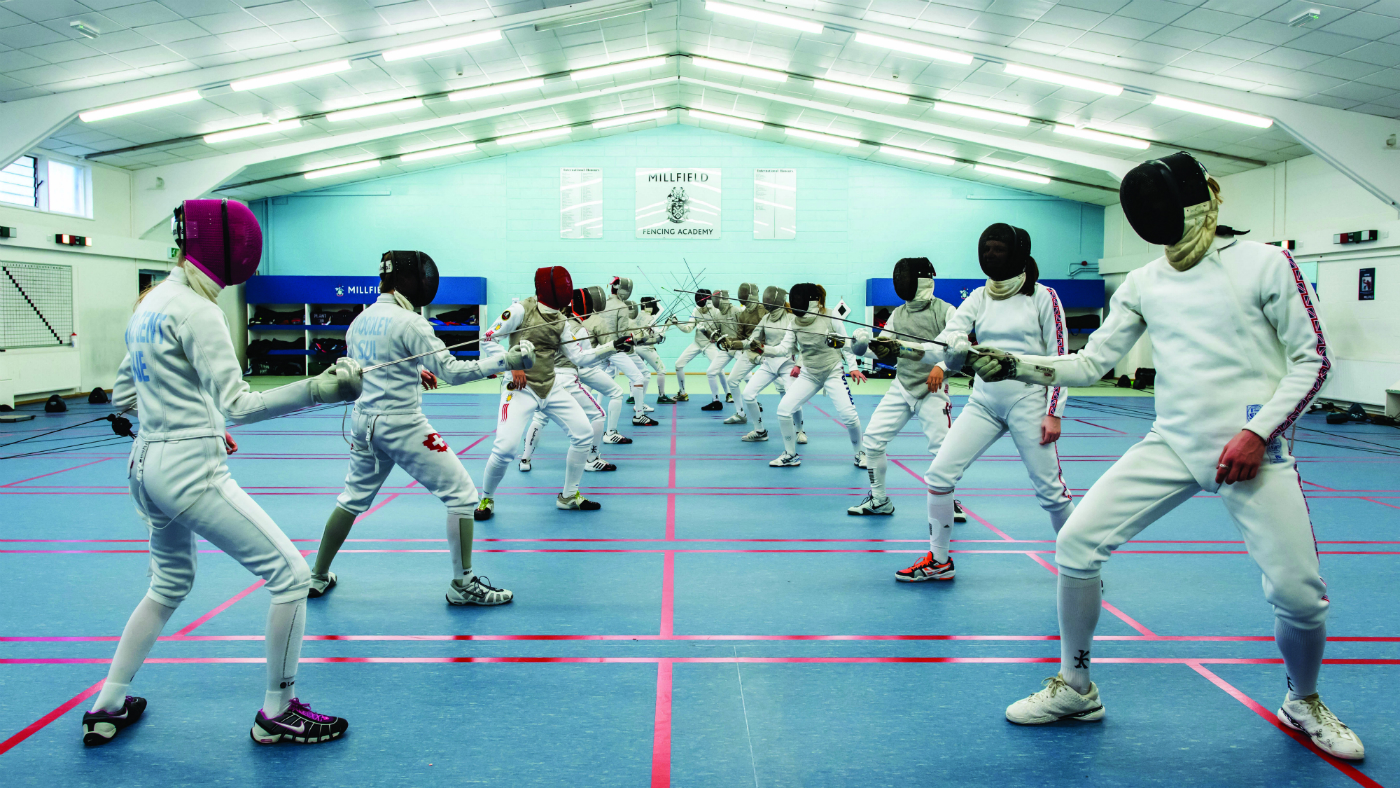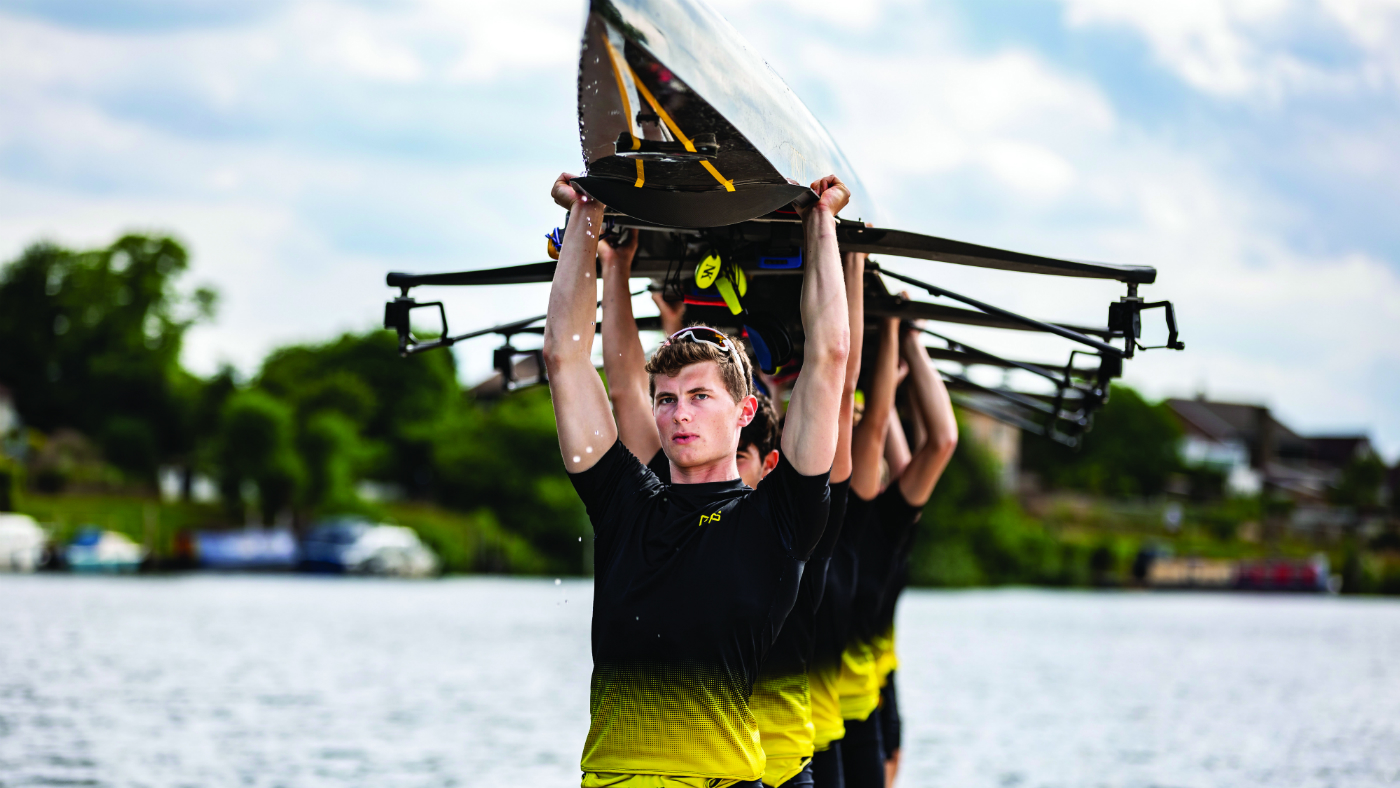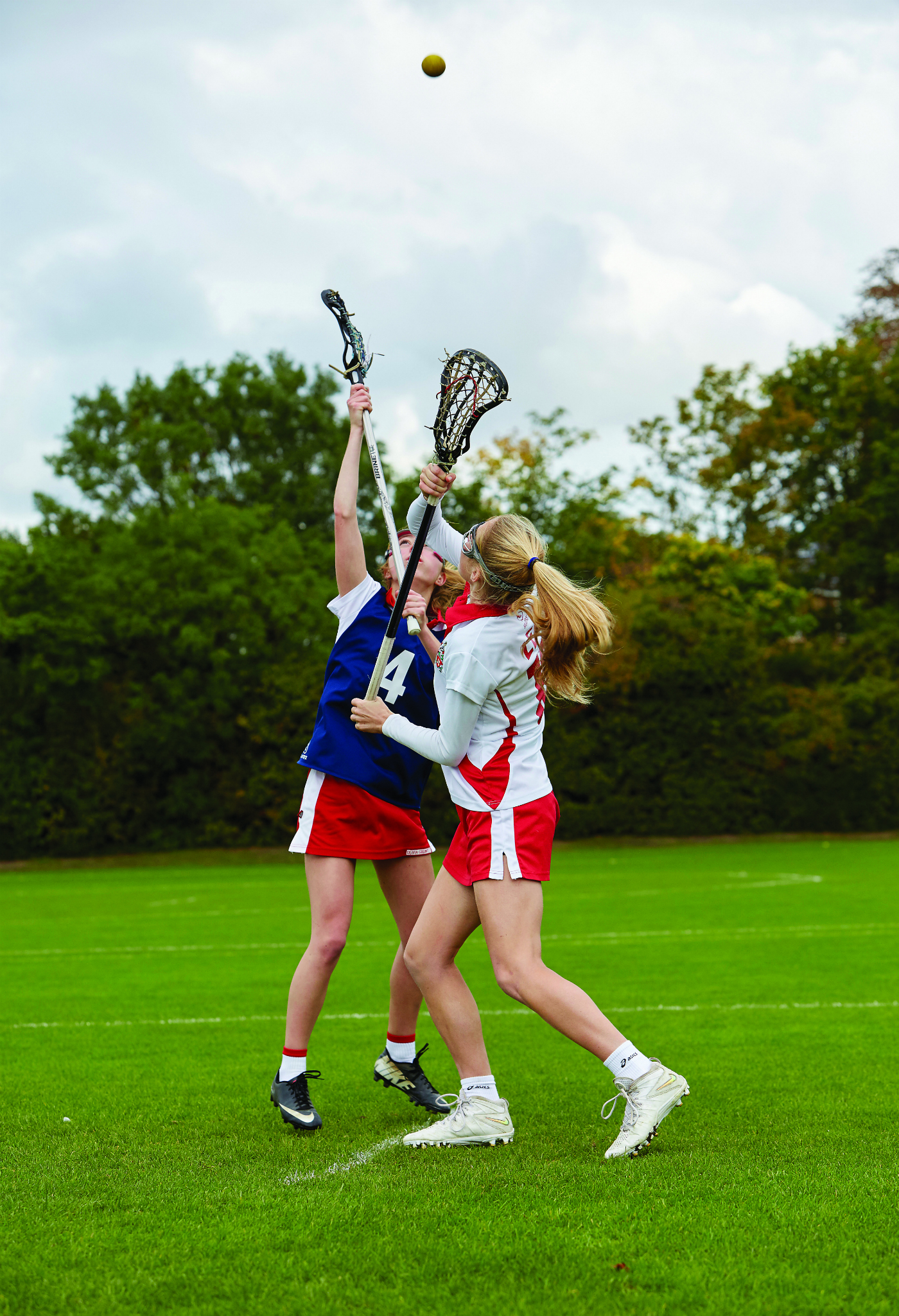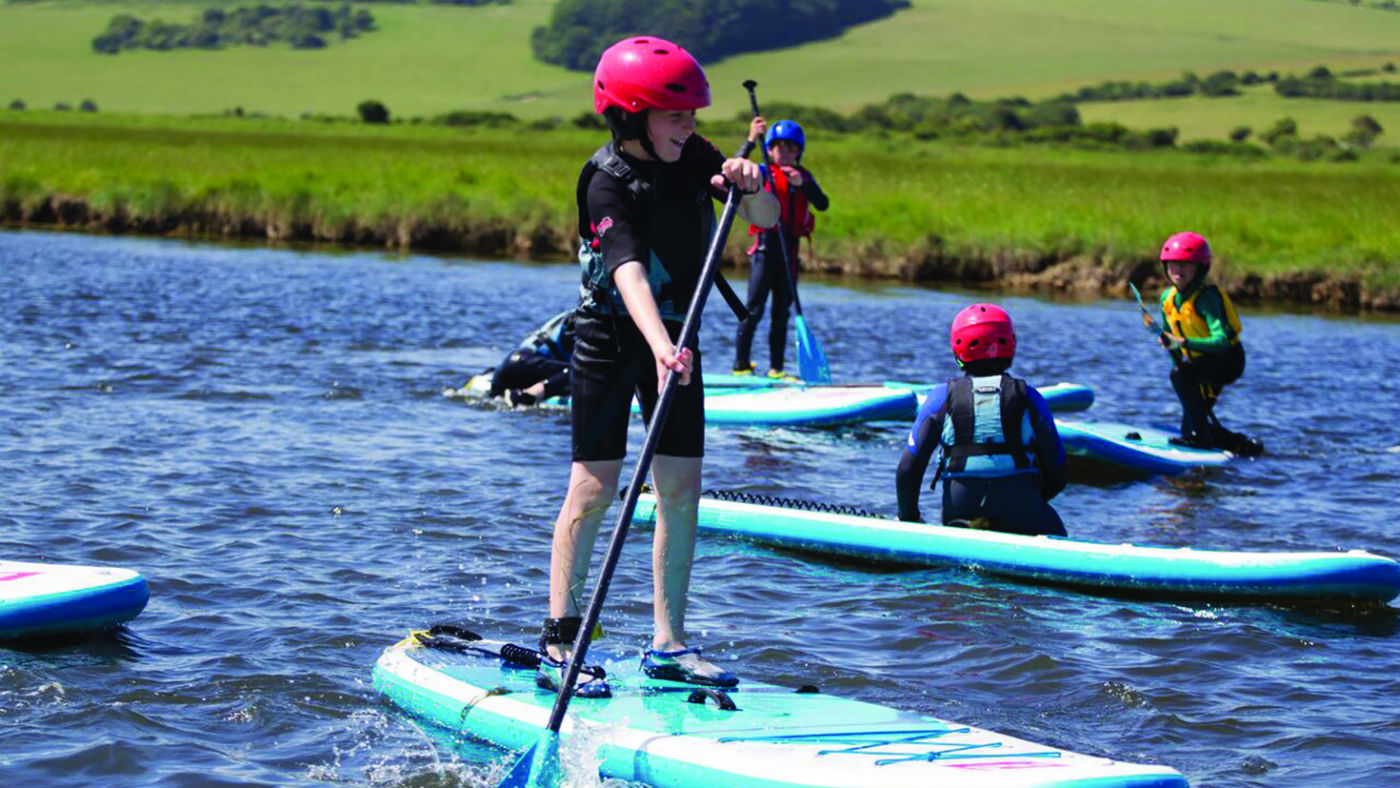The Week's Independent Schools Guide: Game of Life
School sport boosts emotional and physical health

A free daily email with the biggest news stories of the day – and the best features from TheWeek.com
You are now subscribed
Your newsletter sign-up was successful
From rugby and netball to riding and sailing, sport is a big part of school life. But as well as being fun, research shows that sport leads to improved emotional and physical health. Janita Clamp talks to schools about balancing the needs of their most talented pupils and the wider benefits of sport for all.
Everyone, from the most uncoordinated ball dodger to the all-round athlete, has memories of school sport.
Barefoot PE lessons in the gym-cum-dining room where side-stepping squashed peas and carrots was all part of the fun, the elation of scoring the winning goal against your school’s fiercest rivals and the misery of being the last one left when captains picked their teams.
The Week
Escape your echo chamber. Get the facts behind the news, plus analysis from multiple perspectives.

Sign up for The Week's Free Newsletters
From our morning news briefing to a weekly Good News Newsletter, get the best of The Week delivered directly to your inbox.
From our morning news briefing to a weekly Good News Newsletter, get the best of The Week delivered directly to your inbox.
Like maths, sport was fun and easy for those who “got” it and a miserable mystery for those who didn’t. Unlike maths, it wasn’t considered important to find out why some children were disengaged in sports lessons and offer them support and understanding.
But that was then. In today’s independent schools, sport is integral to the core curriculum and what constitutes “sport” goes way beyond the traditional team games. Perfectly tended and perennially photogenic playing fields still feature large on websites and prospectuses, but they have been joined by Olympic-size swimming pools, climbing walls and yoga studios.
Specialist coaches keep up to speed with the latest research in sport science and psychology, and can call on the skills of physiotherapists and experts in nutrition.
Millfield in Somerset is synonymous with sporting excellence. It was the most represented school at the London 2012 Olympics and former pupils won four medals for the UK at the Rio Olympics in 2016. Millfield’s director of sport, Dr Scott Drawer, is a leading figure in performance sport.
A free daily email with the biggest news stories of the day – and the best features from TheWeek.com
Formerly head of the Team Sky (now Ineos) Performance Hub, Dr Drawer has worked with England Rugby and for Team GB Olympic and Paralympics.
His aim is to embed a life-long love of sport in all Millfield’s pupils, not just those who have aspirations to compete at the highest level.
“Roughly 10 per cent of Millfield pupils compete at regional/national level and are on national talent pathways for different sports,” he says.
“We may have a few more at the top end than other schools because of our reputation, programmes and coaching opportunities but we equally have a diverse ability range of pupils. Some will have personal aspirations for careers in sport and some aren’t particularly interested, but a big proportion just love it. We want to stretch every pupil through sport, regardless of ability.”
Dr Drawer says the landscape of sport has changed “dramatically” in the last 20 years, particularly with regard to the development of the most gifted youngsters.
“There has been significant government investment in sport, such as national development pathways. The approach to developing young people with sporting talent is much more sophisticated and systematic. We liaise with pupils’ external coaches to ensure the right balance of training.”
Millfield may have a higher proportion than most, but many other senior schools have elite sports players among their cohort. Carlos Mills is director of sport at Hampton, a boys’ school in Middlesex.
“We have several boys of elite standard most years, especially for football, rugby, rowing and cricket,” he says.

“They are competing at a high level – club, national and international. We have found that there is a very good partnership between clubs and schools.”
Next door to Hampton is all-girls Lady Eleanor Holles (LEH). The school’s lacrosse team were national champions in 2018 and their first eight won the girls’ rowing championships at the National Schools’ Regatta this year.
LEH is also one of the top ten schools in the UK for gymnastics. Last year 17 LEH girls represented their country in sports from tumbling to cricket.
“We will accommodate time off for our elite sports players and are very careful to match school sport with outside training,” says Nicky Budd, director of sport.
“We talk to the girls, check that they’re not getting too tired or stressed. Sporting commitments need to be balanced with academic work too.”
Mrs Budd and Mr Mills agree on the positive effect that pupils with high level sporting talents have on their fellow pupils. Mrs Budd says that LEH’s elite gymnasts, swimmers and lacrosse players “inspire the younger girls”.

According to Mr Mills, the effect goes beyond current pupils.
“Our first XI footballers won the U18 English Schools’ Football Association Schools’ Cup for the first time and Hampton had over 700 supporters there – not just boys, parents and staff, but also alumni. It was so powerful to be part of that common understanding, to feel everyone shared in our success.”
Everyone loves a winner, but what about the vast majority of children whose talents are at the “could do better” end of the sporting spectrum? In common with other schools, Millfield, Hampton and LEH have busy midweek and weekend fixture lists and the aim is that as far as possible all pupils get to play matches.
LEH’s Nicky Budd says: “All clubs are for all levels. Netball and lacrosse are so popular we can meet the full range of abilities. We field as many teams as we can find opposition for.”
For lower ability groups, building confidence and having fun are key.
“We don’t make it about winning,” she says. “Instead we focus on enjoyment. We want to make the girls feel comfortable and capable. We create a supportive atmosphere in which girls can set their own goals for achievement. In gymnastics, for instance, we focus on things that nearly all can learn to do, such as cartwheels, forward rolls and handstands.”
There is nationwide concern about the number of girls who give up sport of any kind as soon as they can at school. Nicky Budd says LEH’s approach to this problem has been to increase the number of PE lessons and widen the range of sports on offer.
“We’ve recently introduced more PE lessons as a result of a curriculum review and now have scope to include sports such as touch rugby, football and outdoor adventure,” she says. “We want to stop girls giving up sport in year 10 in the run up to exams. Our year 9 pathway introduces individual sports such as dance, yoga and swimming.”
She describes this as a “work in progress” but the aim is to give girls exposure to a wide range of fitness activities, so they can find “something to enjoy in the future”.
Boys too can find it hard to juggle academic work, sport and co-curricular activities, especially before important exams. Carlos Mills says that at Hampton “all senior boys are encouraged to continue with sport and get the balance right. The whole school supports this, including academic staff.”
Hampton is one of 20 schools that participated in a study by Professor Peter Clough of Huddersfield University. Professor Clough’s results show that sport significantly boosts the confidence, resilience and performance of young people in the classroom.
It’s this whole school approach, a recognition that being physically active can enhance academic performance, not distract from it, that has been a game-changer. In today’s crowded and increasingly exam-focused curriculum it could be tempting to reduce the time given to PE, but research like this shows how far-reaching the benefits of sport can be. Millfield has conducted its own research into sport and life skills.
According to Dr Drawer: “What children learn through sport helps with the demands of life beyond school and university. Playing in a team develops social skills; the self-management that training demands helps them to deal with pressure.”
And he stresses it’s not all one way. “You can’t separate mind and body. It’s crucial to look at the bigger picture in a school. What’s going on in the classroom and socially can affect performance and vice versa. It’s all interconnected.”
How do prep schools harness the seemingly boundless energy of younger children and keep them as enthusiastic and active at 11 or 13 as they are at the age of five? Sam Rham, PE teacher at Lewes Old Grammar Junior School in East Sussex, thinks the best way is to get children to experience as wide a range of activities as possible.
His school’s list of sporting options is certainly ambitious. It includes paddle boarding, skiing and scuba diving, and he’s got plans to add gliding to the mix.

“There is always a handful of kids who aren’t sure,” he says. “If we can find them something to fall in love with it helps them become physically active.”
He also believes that even subjects like maths can be taught via sport.
“As part of a whole school maths day, years 1 and 2 played football and learned about percentages,” he says. “It’s great for those who struggle with maths but are into football.”
As an ex-military man and former marine engineer, Mr Rham practises what he preaches – sometimes with unexpected results. His lunchtime training runs have proved a hit with pupils.
These were part of his own personal fitness regime, but he has gradually been joined by half the children. His 15-minute boot camp first thing in the morning was intended to get the youngsters who were particularly full of beans ready to work, but now all the children are doing it.
“It’s easy to tell kids to do 50 press ups, but if you show them that you’re doing the same then they want to join in. Show them how much you love it and they’ll want to emulate you. They’ll even want to beat you.”
Like Millfield, Hampton and LEH, Lewes Old Grammar Junior School focuses on the wider lessons sport can teach.
“In a PE lesson you learn that nothing bad happens if you bowl a wide,” says Mr Rham. “You just have to do it again straight away. It’s a life skill; it’s thinking under pressure. Children learn to reflect on what went wrong and try again.”
Millfield’s Dr Scott Drawer takes a similar view: “In sport you lose more than you win – that’s life,” he says.
“But with sport you get to try again, even within the same session. Sport provides a rapid learning environment like no other.”
-
 House votes to end Trump’s Canada tariffs
House votes to end Trump’s Canada tariffsSpeed Read Six Republicans joined with Democrats to repeal the president’s tariffs
-
 Bondi, Democrats clash over Epstein in hearing
Bondi, Democrats clash over Epstein in hearingSpeed Read Attorney General Pam Bondi ignored survivors of convicted sex offender Jeffrey Epstein and demanded that Democrats apologize to Trump
-
 Are Big Tech firms the new tobacco companies?
Are Big Tech firms the new tobacco companies?Today’s Big Question Trial will determine if Meta, YouTube designed addictive products